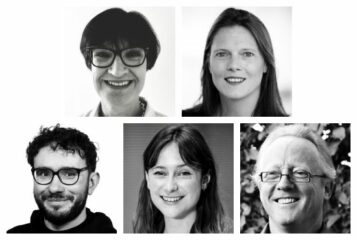The news that public funds for assisted reproduction are not being made available to single women in South East London (see this week's news story) piqued my interest.
Over the last eight years, I have worked on a longitudinal study of single motherhood through assisted reproduction (including IVF) at the Centre for Family Research at the University of Cambridge. During this time, I have visited many families formed using such techniques. I have also become familiar with the many criticisms of these families in my research on social representations of single people who become parents without partners.
By way of brief, and blunt, response: there is no empirical evidence to suggest that mothers and children who are part of single-parent families formed using assisted reproduction are at an intrinsic disadvantage because of parental marital status.
In fact, research shows that the circumstantial challenges that can face families following a divorce or separation, such as financial difficulties or conflict between parents, are generally not relevant to single mother families formed through assisted reproduction. Yet despite the fact that Section 13(5) of the UK Human Fertilisation and Embryology Act no longer requires clinicians to consider a child's 'need for a father' in deciding whom to offer fertility treatment, ill-informed assumptions about single motherhood continue to affect clinical practice (see BioNews 679), specifically by influencing, and in some cases lengthening, assessments of patient eligibility for treatment.
The recent news relating to the CCG (Clinical Commissioning Group) in South East London seems to be a further extension of this practice: to the complex and indeed contentious issue of publicly funded fertility treatment.
Our work at the Centre for Family Research does not address the moral question of whether or not the NHS should fund fertility treatment. Rather, our longitudinal psychological study of single mothers has investigated mothers' wellbeing, children's wellbeing, and mother-child relationships, involving mothers, children, and teachers as informants; assessments by a child psychiatrist blinded to family type; and independent observations of parent-child interaction.
In its first phase, when children were between 4-9 years old, our findings showed no differences in the psychological wellbeing of mothers and children in one- and two-parent families, and no differences in mother-child interaction quality across family types. Preliminary findings from the second phase of the study, involving children up to age 13, seem to paint a similarly positive picture that, when accompanied by research on such families that has been conducted in the USA and elsewhere, provides evidence that is distinctly at odds with the idea that these families are at an intrinsic disadvantage. The restriction of public funds on this basis is therefore empirically unwarranted.
Yet the reports last week were not only of interest because they shed light on a regional policy that is based on misinformation, but also because they generated an all-too-familiar public response about single parents posing a particular threat to the public purse (and so to their children's welfare). In fact, our research has shown that financial difficulties are as likely to be perceived by single mothers as they are by mothers in different-sex couples who have used fertility treatment.
Similarly, it is not clear that questions raised last week about the ethics of assisted reproduction (as opposed to adoption) should be solely asked of single women choosing to become parents in this way. Unsurprisingly, a study in the US found that single women using assisted reproduction choose this path to parenthood for reasons that appear to be entirely ordinary (such as a desire for pregnancy, and/or to have a genetic link to a child). This study also evidenced several structural barriers to adoption for single women, including discrimination from adoption agencies.
When coupled with the recent news that public funding for fertility treatment is being withheld from single women, such findings suggest that the 'disadvantages' for single-parent families, whether already made or in the making, whether through assisted reproduction or adoption, may be more a consequence of professional and public responses than they are a result of their structural features.
Research has long demonstrated that what matters for the functioning of single-parent families – and what therefore should matter in decisions about patient eligibility on the one hand, and funding, on the other – is not parental marital status. Given that the UK Human Fertilisation Embryology Act no longer differentiates between prospective parents on this basis, it is high time that professional practice, and public perceptions, follow suit.







Leave a Reply
You must be logged in to post a comment.